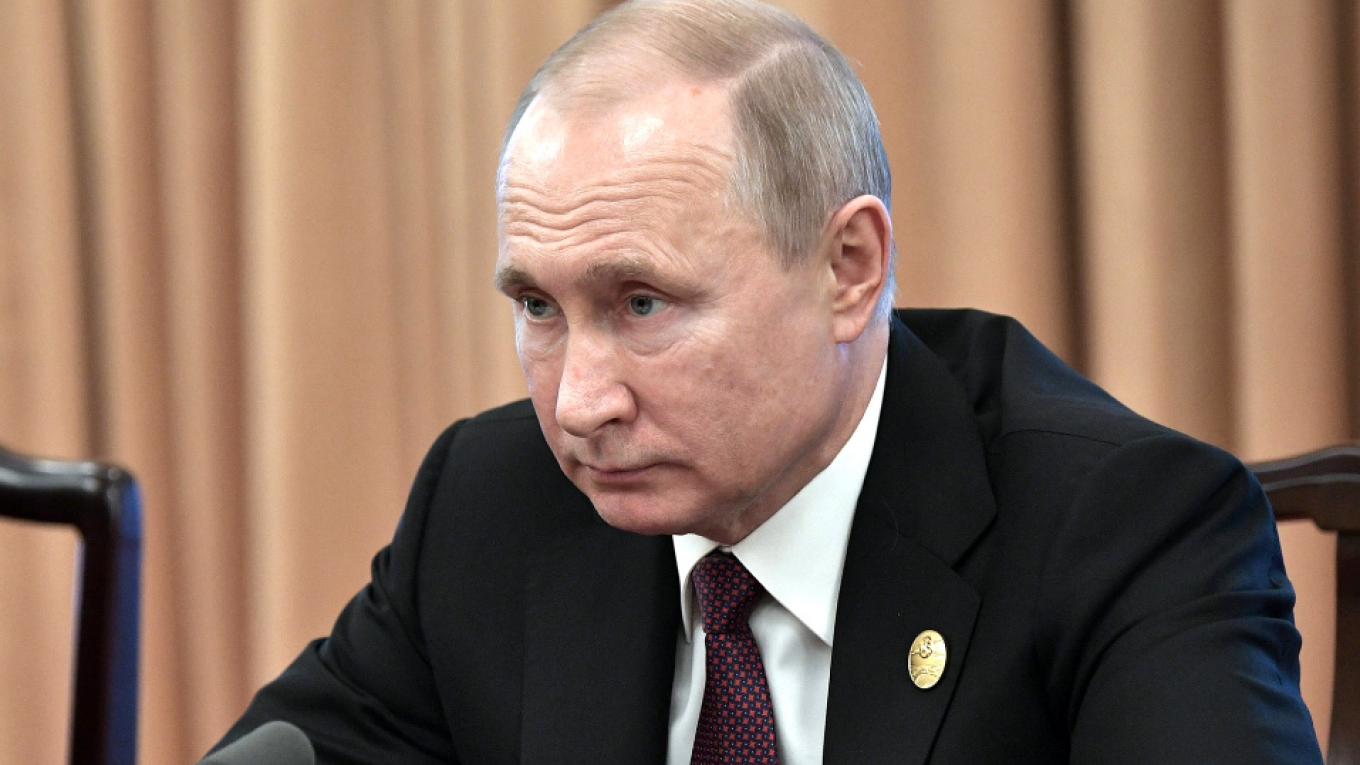President Vladimir Putin on Wednesday signed a bill that seeks to establish Russia’s “internet sovereignty” into law.
Deputies first submitted the measures to tighten state control over the internet in December, citing the need to respond to an “aggressive” U.S. national cybersecurity strategy. It has drawn fierce criticism from civil society groups over fears that it would lead Russia to follow China’s example in establishing an isolated internet landscape.
The law will seek to create an alternative domain name system (DNS) to protect the Russian-language section of the internet in case it is disconnected from the World Wide Web. So far, no country has ever been deliberately disconnected from the internet.
Although Russia’s state media regulator and major tech firms backed the steps to unplug from foreign servers, experts criticized the bill as being too vague and impossible to implement.
A recent state-run poll found that 52 percent of Russians oppose the bill.
A Message from The Moscow Times:
Dear readers,
We are facing unprecedented challenges. Russia's Prosecutor General's Office has designated The Moscow Times as an "undesirable" organization, criminalizing our work and putting our staff at risk of prosecution. This follows our earlier unjust labeling as a "foreign agent."
These actions are direct attempts to silence independent journalism in Russia. The authorities claim our work "discredits the decisions of the Russian leadership." We see things differently: we strive to provide accurate, unbiased reporting on Russia.
We, the journalists of The Moscow Times, refuse to be silenced. But to continue our work, we need your help.
Your support, no matter how small, makes a world of difference. If you can, please support us monthly starting from just $2. It's quick to set up, and every contribution makes a significant impact.
By supporting The Moscow Times, you're defending open, independent journalism in the face of repression. Thank you for standing with us.
Remind me later.






